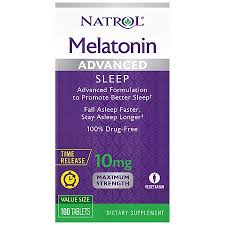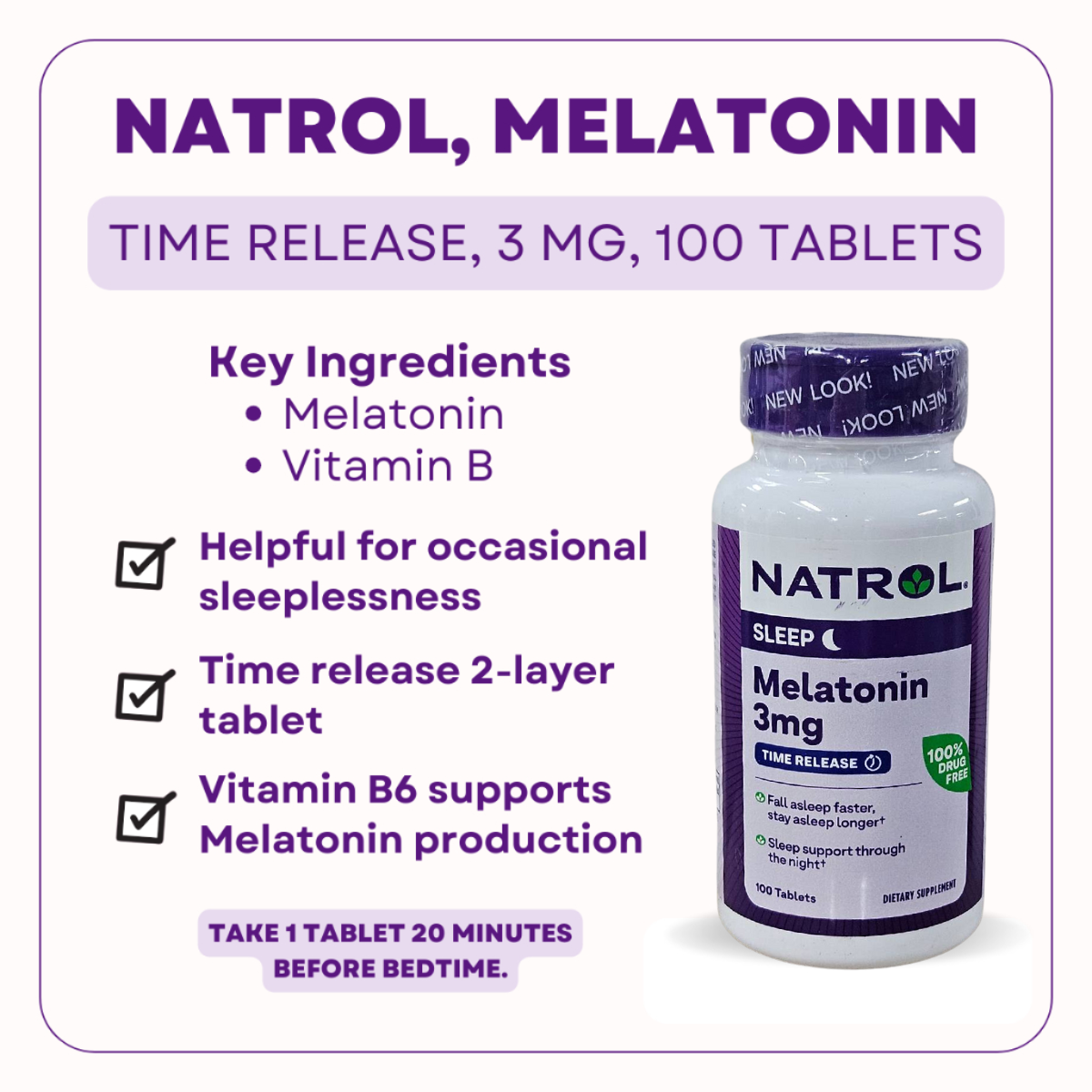The Benefits of Natrol Melatonin for Better Sleep
Natrol Melatonin is a popular supplement known for its role in promoting better sleep and managing sleep disorders. Melatonin is a hormone produced by the pineal gland in the brain that helps regulate our sleep-wake cycle. When our natural melatonin production is disrupted due to factors like stress, jet lag, or irregular sleep patterns, supplementing with Natrol Melatonin can be beneficial.
Here are some key benefits of using Natrol Melatonin:
- Improves Sleep Quality: Natrol Melatonin can help you fall asleep faster and stay asleep longer, leading to improved overall sleep quality.
- Manages Jet Lag: If you frequently travel across time zones and experience jet lag, taking Natrol Melatonin at the right time can help reset your internal clock and ease the transition.
- Supports Shift Workers: For individuals who work night shifts or irregular hours, Natrol Melatonin can help regulate their sleep patterns and improve rest during non-traditional sleeping hours.
- Reduces Insomnia Symptoms: People suffering from insomnia may benefit from using Natrol Melatonin as a natural aid to promote relaxation and induce sleep.
Natrol offers a range of melatonin products in different strengths and formulations to suit individual needs. It’s important to follow the recommended dosage instructions provided on the packaging or consult with a healthcare professional before starting any new supplement regimen.
In conclusion, Natrol Melatonin can be a safe and effective way to support healthy sleep patterns and address common sleep-related issues. Whether you’re looking to improve your overall sleep quality, manage jet lag, or combat insomnia, incorporating Natrol Melatonin into your routine may help you achieve better rest and wake up feeling refreshed.
Frequently Asked Questions About Natrol Melatonin: Safety, Usage, and Effects
- Is it okay to take Natrol melatonin everyday?
- Why is melatonin no longer recommended?
- Is Natrol melatonin safe?
- Is it OK to take a melatonin every night?
- How safe is natrol melatonin?
- How long does natrol melatonin make you sleep?
- What are the side effects of Natrol melatonin?
- Is natrol melatonin FDA approved?
Is it okay to take Natrol melatonin everyday?
Taking Natrol melatonin every day is generally considered safe for short-term use to address sleep issues or regulate sleep patterns. However, it is important to consult with a healthcare provider before making it a daily habit, especially for long-term use. While melatonin is a natural hormone produced by the body, prolonged supplementation may affect the body’s natural production of melatonin. Your healthcare provider can provide personalized guidance on the appropriate dosage and duration of Natrol melatonin use based on your individual needs and health conditions.
Why is melatonin no longer recommended?
There may be misconceptions surrounding the recommendation of melatonin due to various factors. While melatonin is generally considered safe for short-term use in adults, there are concerns about its long-term effects and potential interactions with certain medications or health conditions. Some experts suggest that reliance on melatonin supplements may mask underlying sleep issues that require alternative interventions or lifestyle changes. It’s important to consult with a healthcare provider before using melatonin regularly to ensure it is appropriate for your individual circumstances and to address any underlying sleep concerns effectively.
Is Natrol melatonin safe?
Natrol melatonin is generally considered safe for most people when taken at the recommended dosage. However, it’s important to consult with a healthcare professional before starting any new supplement, especially if you have underlying health conditions, are pregnant or nursing, or are taking medications that may interact with melatonin. Some potential side effects of melatonin may include drowsiness, headaches, and dizziness. It’s crucial to follow the instructions on the product label and not exceed the suggested dose to minimize any risks. Overall, Natrol melatonin is a widely used and well-tolerated sleep aid that can be beneficial for promoting healthy sleep patterns when used responsibly.
Is it OK to take a melatonin every night?
Taking melatonin every night can be safe for many people, especially when used in appropriate doses and under the guidance of a healthcare professional. Melatonin is a hormone that helps regulate the sleep-wake cycle, and supplementing with it can be beneficial for individuals with sleep disorders or those who have trouble falling asleep. However, it’s essential to follow the recommended dosage instructions and not exceed them without consulting a healthcare provider. Long-term use of melatonin every night may not be suitable for everyone, so it’s important to discuss your individual needs and concerns with a healthcare professional to determine the best approach for incorporating melatonin into your nightly routine.
How safe is natrol melatonin?
Natrol Melatonin is generally considered safe for most people when taken at appropriate dosages and for short-term use. Melatonin is a hormone naturally produced by the body to regulate the sleep-wake cycle, and supplementing with Natrol Melatonin can help address sleep-related issues. However, it’s important to follow the recommended dosage instructions provided on the product packaging or as advised by a healthcare professional. While side effects are rare, some individuals may experience mild symptoms such as dizziness, headache, or daytime drowsiness. As with any supplement, it’s advisable to consult with a healthcare provider before starting a new regimen, especially if you have underlying health conditions or are taking other medications that may interact with melatonin.
How long does natrol melatonin make you sleep?
Natrol Melatonin is designed to help individuals fall asleep faster and improve the overall quality of their sleep. The duration of sleep induced by Natrol Melatonin can vary depending on factors such as an individual’s metabolism, sensitivity to the supplement, dosage taken, and other personal factors. Typically, Natrol Melatonin is known to promote relaxation and support the body’s natural sleep-wake cycle, leading to a more restful and rejuvenating sleep experience. It’s important to follow the recommended dosage instructions provided by the manufacturer or consult with a healthcare professional for personalized guidance on using Natrol Melatonin for optimal sleep benefits.
What are the side effects of Natrol melatonin?
When considering the use of Natrol melatonin, it is important to be aware of potential side effects that may occur. While melatonin is generally well-tolerated by most individuals, some people may experience mild side effects such as drowsiness, headache, dizziness, or stomach discomfort. In rare cases, more severe side effects like allergic reactions or changes in mood and behavior have been reported. It is recommended to consult with a healthcare provider before starting any new supplement, including Natrol melatonin, especially if you have underlying health conditions or are taking other medications. Monitoring your body’s response to melatonin and adjusting the dosage as needed can help minimize the risk of experiencing adverse effects while still benefiting from its sleep-promoting properties.
Is natrol melatonin FDA approved?
Natrol Melatonin is classified as a dietary supplement by the U.S. Food and Drug Administration (FDA). Dietary supplements like Natrol Melatonin are regulated under the Dietary Supplement Health and Education Act (DSHEA) of 1994. While the FDA does not approve dietary supplements in the same way it approves pharmaceutical drugs, manufacturers of dietary supplements are responsible for ensuring their products are safe and accurately labeled. Natrol adheres to FDA regulations and Good Manufacturing Practices (GMP) to maintain quality standards for their melatonin products. It’s always recommended to consult with a healthcare professional before starting any new supplement to ensure it is suitable for your individual needs.


